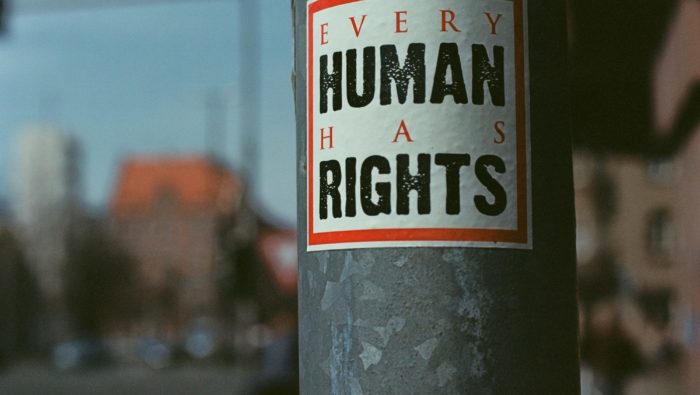
EU ‘Return Hubs’ in Third Countries: Fundamental Rights Risks and Monitoring

On 4 October 2024, 17 EU Member States submitted a non-paper to the European Commission (EC) calling for a new proposal to achieve ‘more effective returns’ and revise the legislative framework established by the 2008/115 Return Directive. The initiative, spearheaded by Austria and the Netherlands and endorsed by 12 other EU Member States (Croatia, Czech Republic, Germany, Denmark, Greece, Finland, France, Italy, Luxembourg, Malta, Slovakia, and Sweden) along with three Schengen Associated Countries (Liechtenstein, Norway, and Switzerland), signals a significant shift in the EU’s approach to migration control. A week later, European Commission President Ursula von der Leyen, in a letter addressed to the 27 EU Member States, expressed support for the idea of ‘return hubs’ as part of a broader strategy to counter “illegal” migration: ‘We should also continue to explore possible ways forward as regards the idea of developing ‘return hubs’ outside the EU, especially in view of a new legislative proposal on return.’ Indeed, on 11 March 2025, the EC presented a new proposal for a Regulation establishing a common system for returns (2025/0059) that would repeal the Return Directive of 2008. While positive measures of the proposal concern the bolstering of independent force-return monitoring mechanisms and criteria to assess the risk of non-refoulement, it also introduces stricter rules on return procedures and detention and, among other aspects, restricts migrants’ rights to appeal return decisions and opt for ‘voluntary’ return. It also expands potential countries of return with the introduction of a legal framework for Member States to explore the possibility of establishing ‘return hubs’.
‘Return hubs’, envisioned as sites for the temporary hosting of migrants who have been ordered to leave the EU or denied entry, would be established through bilateral agreements or arrangements of Member States with third countries on the precondition that these “may only be concluded with a third country where international human rights standards and principles in accordance with international law”, including the principle of non-refoulement (Article 17 of the proposed Regulation). In more detail, these ‘return hubs’ would serve as a temporary holding area before deportation is executed by a Member State or Frontex, extending the externalisation of migration governance. Such developments, however, raise fundamental socio-legal concerns about the shifting of responsibility for migrant rights and the legal implications of creating extraterritorial spaces for control. While the ‘hubs’ could be funded by the Union, no Parliamentary oversight is indicated at EU level.
The externalisation of migration management is already evident in the investment by States in the Global North in the pre-emptive control of migration flows from the Global South. This control operates through practices like external border management, migration partnerships, and security outsourcing. Furthermore, problematic deals between the EU and third countries—such as the Italy-Albania protocol, deemed incompatible with EU asylum law and raising human rights concerns—illustrate the vulnerabilities that arise from such arrangements. The EU also allocates financial instruments aimed at facilitating the implementation of its external migration policy, though these are not without concerns, particularly due to a lack of transparency and the delegation of responsibilities. For instance, in October 2024, the European Ombudsman (OI/2/2024/MHZ) identified human rights violations in the case of EU-funded border management projects related to the EU-Tunisia Memorandum of Understanding signed in July 2023, further illustrating the risks posed by externalised migration management. The territoriality of human rights obligations also creates significant accountability issues, especially in contexts where third countries are involved in migrant returns.
In light of these concerns, in February 2025, the European Union Agency for Fundamental Rights (FRA) published a position paper offering a legal review of the planned ‘return hubs’. The paper stresses that these hubs ‘cannot be rights-free zones’ and that their planning must be aligned with fundamental rights standards and EU law. The FRA outlines several key recommendations: (i) decisions regarding returns and refusal of entry should be based on individual assessments; (ii) the principle of non-refoulement is non-derogable, and vulnerable returnees, including children, should be exempted from transfer (concernedly, the proposed new Regulation on returns (2025/0059) specifically exempts unaccompanied minors and families with minors from transfer to ‘return hubs’ with no dedicated reference to vulnerable individuals); (iii) agreements with host countries should be preceded by impact assessments; (iv) minimum standards for lawful treatment should be established, with EU funding aligned with fundamental rights safeguards; and (v) independent human rights monitoring mechanisms should be implemented, with the proposed Regulation (2025/0059) providing for the obligation to set up monitoring. Importantly, the FRA provides more guidance on monitoring within ‘return hubs’, indicating that it should encompass all stages of the return process, with involvement from national statutory human rights bodies in both Member States and host countries, as well as Fundamental Rights Monitors which assess compliance of Frontex’s operational activities. Crucially, it also recommends the provision of accessible complaint mechanisms (Article 17 of the new Regulation does not mention this provision).
However, a key question remains: how can monitoring, framed as a rights-based activity, be effectively incorporated into ‘return hubs’ without shielding deportation practices from legitimate scrutiny?
While monitoring has the potential to ensure that deportations comply with human rights standards, it also risks legitimising processes that may remain inherently flawed or unjust. Research from the FAiR project on forced-return monitoring across 11 EU Member States reveals significant operational challenges in implementing Article 8(6) of the Return Directive (2008/115), which mandates the monitoring of forced removals from the EU. Key issues include insufficient resources, unclear responsibilities, and inconsistent reporting mechanisms. Thus, it is worth questioning whether the establishment of new ‘cultures’ of monitoring within and in coordination with third countries will genuinely improve the rights of migrants transferred to these ‘return hubs’, especially when monitoring practices within the EU remain incomplete and ineffective. This underscores a larger socio-legal issue: the disconnection between the rhetoric of rights-compliance and the reality of systemic failures in monitoring and accountability.
The issues raised by ‘return hubs’ highlight the broader implications of the EU’s strategies for migration control, particularly the way in which responsibilities for human rights are being externalised to third countries and international agencies. This speaks to the ongoing tension between state sovereignty, international law, and the rights of migrants, further complicated by the EU’s multifaceted partnerships and funding arrangements. As such, these initiatives should not be viewed in isolation but as part of the EU’s broader attempt to outsource responsibility for migration management and human rights protections. The challenge now is to ensure that the establishment of ‘return hubs’ does not simply reinforce the externalisation of risks and violations, but that it is grounded in meaningful accountability and respect for the dignity and rights of all migrants.

